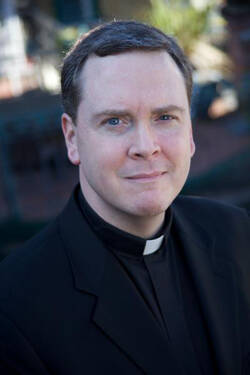Who can tell me the title of the chapter in “Lumen Gentium” that talks about the laity,” asked our theology professor. “That’s an easy one,” we thought. A half dozen hands shot up; we knew the gist of the famous document from the Second Vatican Council. “The People of God,” answered one student. “Wrong,” said the professor. “The chapter about the laity,” said the professor, “is titled ‘The Laity.’” He continued: “The chapter titled ‘The People of God’ includes the laity, but the people of God means all the members of the church, clerical and lay alike.”
That was news to us. We had been told, growing up after the council, that the most important teaching of Vatican II was that the church is the people of God, which meant that the church is the laity, not the hierarchy. Our professor had a point, though: If there is a chapter titled “The People of God” and also a chapter titled “The Laity,” it follows that they are not, strictly speaking, the same thing.
You would not know that, however, from listening to the current ecclesiastical conversation. Not a few of us are saying something like this: “What we need is a new pope who will remember that the church is the people of God and not the priests and the bishops.” Now, not only is that not what the conciliar fathers meant by the phrase “people of God”; it is exactly the opposite.
The council never understood the phrase to mean a this-worldly political class, let alone a lay proletariat engaged in some kind of political struggle with the clerical bourgeoisie. Conceived in those terms, the phrase is just a blunt expression of power politics, nothing more than the latest version of the disciples’ argument about who was the greatest among them. “People of God” in that sense is not essentially different from clericalism, which also makes certain claims about who is the greatest.
Still, the council did do something different. By using the phrase “people of God” to describe the church, the council fathers made it clear that the church is more than the ministerial priesthood; it is a hierarchy of all the baptized.
That is not without political implications, but its spiritual significance is far more important. “The church, which is Jesus Christ spread abroad and communicated,” Henri de Lubac, S.J., wrote, “completes—so far as it can be completed here below—the work of spiritual reunion which was made necessary by sin; that work that was begun at the incarnation and was carried on up to Calvary.”
The “Dogmatic Constitution on the Church” describes this “spiritual reunion” as “a communion of life, charity and truth…used by him as an instrument of redemption for all.” It is precisely this spiritual reunion that constitutes the new people of God, a people “not according to the flesh but in the spirit.”
In order to draw them ever more deeply into his inner life, God has given to the new people of God the gift of priesthood. Though the two forms of priesthood “differ from one another in essence and not only degree” each is “in its own special way...a participation in the one priesthood of Christ” through which “the Catholic Church strives constantly and with due effect to bring all humanity...back to its source in Christ.”
The expression “people of God,” then, is a summons to unity, a symbol of the one body of Christ. It is not the “We the People” of our secular politics. If our vision for the church to come is to avoid fatal distortions, then we need to leave our ideologies behind. The council fathers did not call us to mount the barricades; they called us to holiness. If we are to be the one, holy people of God, then we need to stop claiming that we possess the Truth and start praying that He possesses us.








